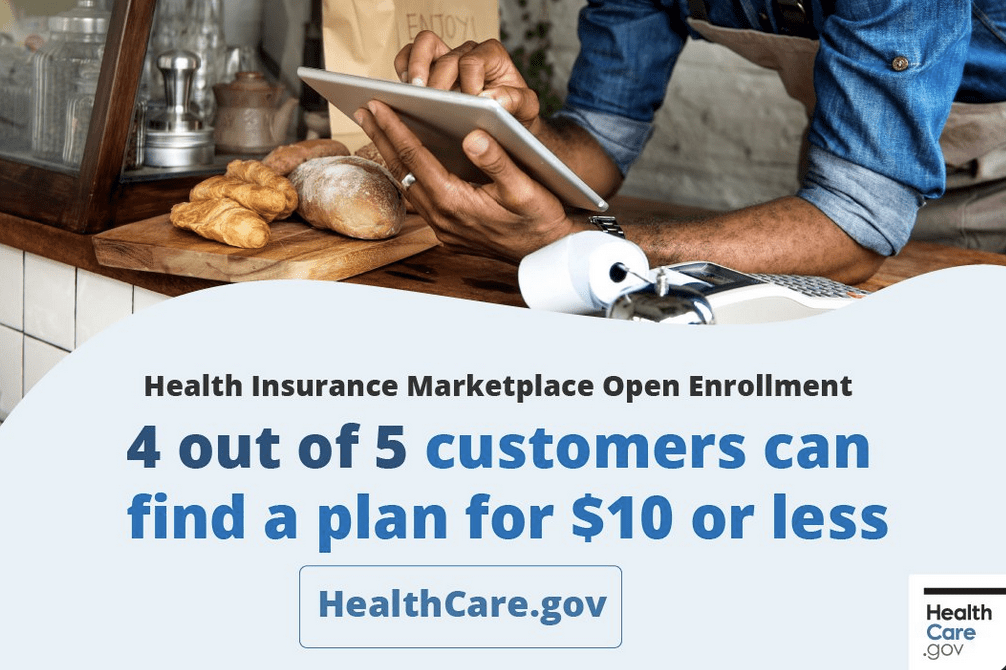Affordable Care Act 2025 open enrollment ends January 15, 2025. A record number of Americans have already signed up for an ACA marketplace plan for 2025. Yes, the ACA lives on (for now), and if you are not already covered by health insurance, I strongly recommend looking into an ACA plan.
I’ve provided resources and answers to a number of common questions about ACA enrollment below. And, if you are not able to sign up through open enrollment for 2025, you may still be eligible to enroll through special enrollment at a later time. Read on for more details.
What are the Open Enrollment Dates?
Open enrollment closes for most states (the ones that utilize healthcare.gov for their exchange) ends January 15, 2025, however, you may be eligible for a special enrollment period with a qualifying life event. There are a number of insurance options for newly uninsured individuals, including ACA plans, outside of the open enrollment period. Start the enrollment process to see if you are eligible. Some states that manage their own health insurance exchanges have extended deadlines beyond January 15, 2025.
Where do I Enroll?
Healthcare.gov. If you’re in one of the states (+DC) with its own marketplace, you will be redirected from there. It’s important that you ONLY sign up for a plan by starting at healthcare.gov. If you sign up through a 3rd party, you likely will not be eligible for premium subsidies and you might be signing up for a garbage plan.
If I Currently Have a Plan, Do I Need to Sign Up Again?
If you currently have a plan, it is strongly recommended that you log in to review your options for next year and either renew or switch plans. As noted earlier, there are many new qualified plans and premiums, subsidies, and cost sharing will likely differ, per plan, each year. Additionally, premium subsidies may change based off of your income and the plans you choose. You will want to update your income and household information appropriately.
Who Should Sign Up for a Marketplace Plan?
My recommendation: everyone who does not have employer sponsored insurance (either directly or through a family member, including your parents, if you are under age 26), Medicaid, CHIP, or Medicare.
Why Should I Sign Up for a Marketplace Plan?
Because your health and financial solvency is at stake. Even the healthiest among us are just one unforeseen event or imperfect gene away from medical costs that could bankrupt us. Additionally, marketplace plans provide subsidies to almost everyone who purchases a plan on the exchanges. If you buy insurance outside of the exchanges, you will not receive subsidies.
What Does the ACA Cover?
Aside from pre-existing condition coverage and coverage of a certain percentage of your total health care costs (up to 100%) once your deductible is met, and 100% once your out-of-pocket maximum is met, ACA plans all cover the following 10 essential health benefits at any time:
- Ambulatory patient services (outpatient care you get without being admitted to a hospital)
- Emergency services
- Hospitalization (like surgery and overnight stays)
- Pregnancy, maternity, and newborn care (both before and after birth)
- Mental health and substance use disorder services, including behavioral health treatment (this includes counseling and psychotherapy)
- Prescription drugs
- Rehabilitative and habilitative services and devices (services and devices to help people with injuries, disabilities, or chronic conditions gain or recover mental and physical skills)
- Laboratory services
- Preventive and wellness services and chronic disease management
- Pediatric services, including oral and vision care (but adult dental and vision coverage aren’t essential health benefits)
What do I Need to Sign up for a Plan?
The Centers for Medicare and Medicaid Services (CMS) has put out a checklist of the information needed for marketplace applications.
Where Can I Get Help Signing up for a Plan, if Needed?
If you have questions about signing up or want to talk through your options with a trained professional, call 1-800-318-2596 or visit https://localhelp.healthcare.gov/#/.
Related Posts:

